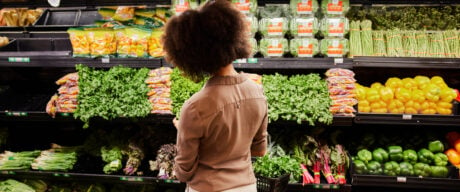In the wake of some of the highest rates of inflation in decades, Canadians can add liquor to the list of things that’ll cost more in 2023.
There are ways to cut costs without going dry — though you may need to get strategic about how and where you spend money on alcohol.
Tax on liquor will rise in April
On April 1, 2023, liquor in Canada will cost more thanks to an alcohol tax hike implemented by the federal government. The increase is a result of an annual escalator excise tax implemented in 2017. The escalator tax allows the federal government to automatically raise taxes on alcohol in response to inflation.
Speaking of which: Canada’s inflation rate hit a 39-year high in June 2022. Though it’s since receded, the elevated cost of goods and services across the country continues to put pressure on consumer finances. And this alcohol tax bump means trips to the liquor store are about to become more expensive.
Liquor taxes were initially projected to rise by 6.3% in April, but the 2023 federal budget has proposed a temporary cap of 2% on alcohol excise duties. The potential cap will stay in place for one year, pending budget approval.
Either way, this alcohol tax bump may not impact your next trip to the liquor store. At least, not by much.
“Alcohol excise duty rates are adjusted by law on an annual basis to account for inflation,” Adrienne Vaupshas, press secretary for the Office of the Deputy Prime Minister and Minister of Finance, said in an email. “The April 2023 adjustment of 6.3% would be equivalent to approximately three quarters of a cent ($0.0078) per 355 mL can of beer.”
3 ways to cut costs and buy booze on a budget
Despite alcohol tax hikes and high inflation, there are ways to save money on spirits — though you may need to get creative.
If you think crossing a provincial border is the answer, think again. Alcohol taxes vary by province, with flat-rate and percentage-based markups that fluctuate by liquor type, volume and more. This makes it challenging to identify how much more or less you may pay to purchase liquor outside your home province.
Instead, look to lower-shelf liquors, duty-free discounts and drink specials at bars and restaurants to cut down on alcohol costs.
1. Skip the premium liquors
Production method, age, and location often play a big role in how alcohol is priced. Vintage wines tend to be more expensive than younger wines. You’ll pay more for craft or imported beer than you will for domestic drafts. Spirits also range in price, and unless you plan to savour it straight, skip the premium stuff and opt for a less expensive bottle.
2. Buy from a duty-free shop
Duty-free stores sell products — alcohol, jewellery, tobacco products, perfume, and other souvenirs — without added import, sales, value-added (VAT) and local taxes. The opportunity for savings at a duty-free shop is significant, especially when purchasing heavily-taxed goods, like alcohol.
For evidence, look no further than the price differences between the government-owned and operated Liquor Control Board of Ontario and the Duty-Free shop located in Fort Erie, Ontario.
| LCBO | Peace Bridge Fort Erie Duty-Free | |
|---|---|---|
| Dillon's Unfiltered 22 Gin (750 ml) | $41.95 | $32.95 |
| Absolut Vodka (1L) | $31.45 | $21.95 |
| Remy Martin Cognac (1L) | $111.45 | $99.95 |
| Trius Brut (750 ml) | $29.95 | $24.95 |
Duty-free stores are often found at international land borders and airports, so opportunities to take advantage of tax-free savings may be few and far between. But the next time you take an international trip, budget some time to browse the duty-free wares for potentially big savings.
3. Scout for drink specials when dining out
Expect to pay more for alcoholic beverages when dining out. In fact, you may find yourself paying double (or more) for a bottle of wine at a restaurant — at least in Ontario. If you’d like to enjoy a drink or two while out on the town, look for happy hour specials and the like. Some restaurants have discounted daily drink features, half-priced bottles of wine or two-for-one cocktails, depending on the time of day or day of the week. Taking advantage of these deals may require some planning, but the savings could be well worth the effort.
Editor’s Note: This article previously miscalculated the tax hike’s impact on a Canadian’s average annual alcohol bill. That miscalculation has been removed. The article has been updated with a quote from the Office of the Deputy Prime Minister and Minister of Finance estimating the tax’s impact on the price of a can of beer.
DIVE EVEN DEEPER

5 Survival Strategies for Times of High Inflation
Reassessing your budget, taking advantage of sales and rewards programs, and opening a GIC are ways to hedge against inflation.

Budgeting 101: How to Budget Your Money
A budget is a plan that helps you manage your money so you can spend and save wisely. Learn how to make a budget — and how to stick to it.

How to Save Money on Groceries: 10 Tips Anyone Can Try
Digital flyer apps, coupons and a rewards credit card are just some of the tools that can help you save money on groceries.

6 Financial Trends That Could Shape 2023: Recession, Housing, Crypto and More
Persistent inflation and a minor recession are expected in 2023, but so is increased stability in the housing and stock markets. Start preparing your finances now and you could take advantage of the uncertainty.

